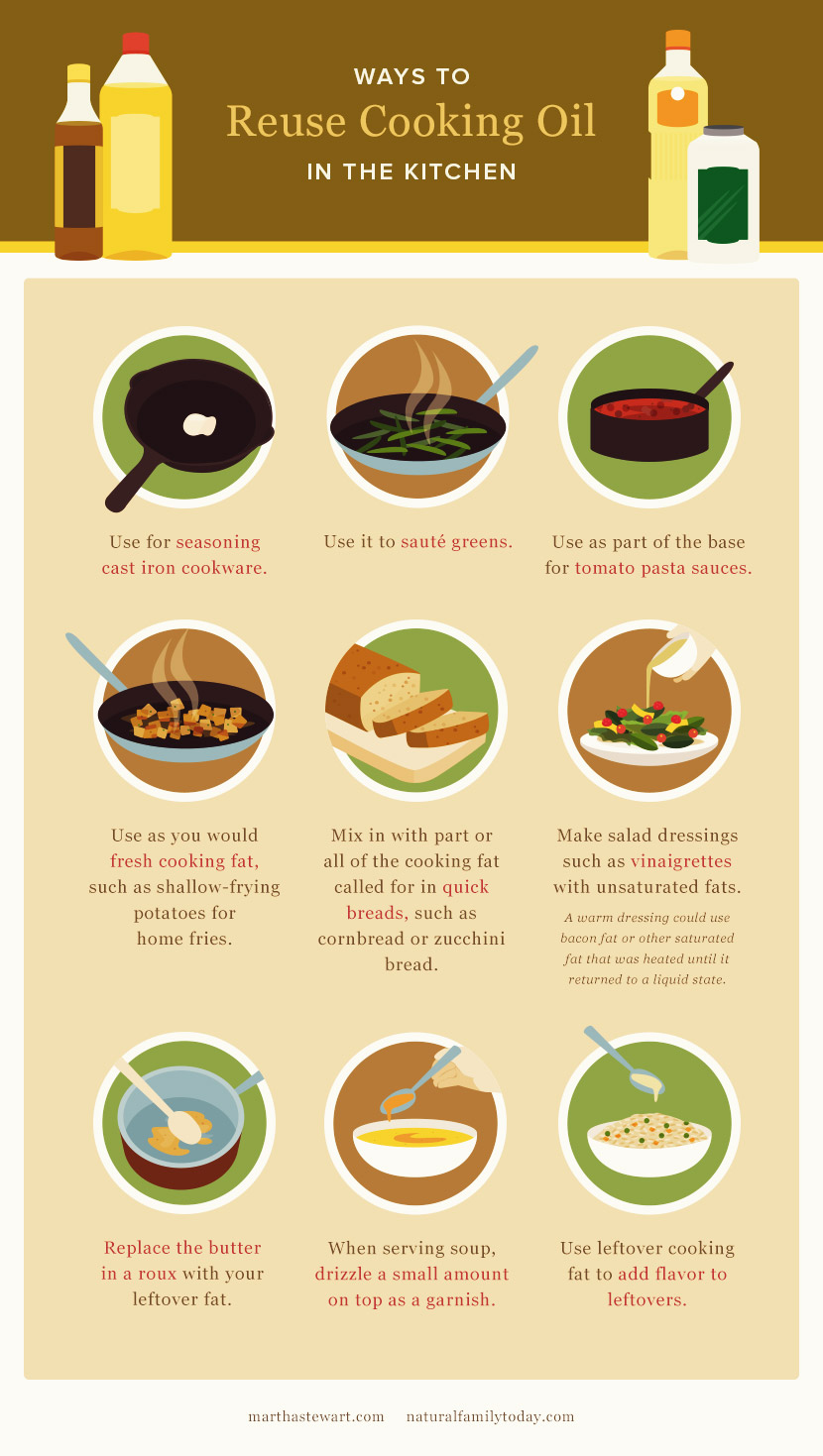
In the past Ive put the liquid in the fridge and removed the fat. Seal it well and dispose of it in the general waste bin.
/how-do-i-dispose-of-used-cooking-oil-908995_FINAL-5b43902cc9e77c003736f7bc.png)
If you dont have a non-recyclable container you can use a jar or a bottle.
How to dispose of liquid fat. Top tips to dispose of fats and oils safely Scrape or wipe plates pans and utensils prior to washing put the solid waste into the rubbish bin Keep oil and grease out of washing up water Do not put cooking oil fat or grease down the sink. Use strainers in sink plug holes and put any collected. Scrape food scraps and fat off your plates into your bin or food waste recycling.
Use your Gunk Pot or similar container to collect cooled fats oils and grease from roasting trays and frying pans. Give plates and pans a quick wipe with kitchen roll or newspaper to remove any liquid fat or grease before putting in the sink or dishwasher. For fats that solidify let them do so then pitch them in your regular garbage.
Chill grease in the fridge if you need to get it to harden up. For ones that dont solidify pour them into a sealable hopefully non-recyclable bottle and throw the whole container away with your regular garbage. Collect oils grease and fat in containers Avoid pouring oils down a sink Wipe pans and cooking tins with paper to remove excess fats and oils before washing Train and teach staff of the importance of correct disposal of oil waste Use a disposal method approved by an authorised waste.
Best Way to Dispose PoachingCooking Liquid with Fat. I usually parboil bratwurst in a beer-onion-bay leaf-peppercorn mixture before finishing on the grill. Therefore fat leaches out of the brats into the liquid.
In the past Ive put the liquid in the fridge and removed the fat. Fat or grease down the sink. Do not pour waste oil fat or grease down the drain.
Do not put food scrapings into the sink place in the rubbish bin. Do not sweep waste into floor drains place. Any leftover cooking fat in a roasting tray for example should be emptied into a container such as a fat trap or an old margarine tub.
Here fats and grease can be collected and allowed to sit cool and solidify. At this point the contents can be disposed of in the bin. The Food Lab recommends half a cup of water and a teaspoon of powdered gelatin for every quart of slightly warm dirty oil.
Add the gelatin to the. Here you can see how easily you can use a fattrap pouch to quickly and effectively soak up oil or liquid fat after cooking to give you a solid pouch that yo. 2 Its okay to pour liquid oils down the drain.
Liquid cooking oils float on water and easily adhere to sewer pipes. Dish soap only temporarily breaks up the fat oil and grease. Further down the sewer line all that grease oil and fat will begin to congeal and cause a blockage.
Get yourself a container with a screw top lid and pour all cooled waste cooking oil into it Then once its full take it down to your local council run recycling centres where you can dispose of it safely often its recycled cleaned up filtered and quite often turned into bio-fuel. For those fats that become solid such as bacon grease you should let them harden in the pan or a small jar and scrape the fat into your trash can. Speeding up the process by placing the pot or jar in the refrigerator to chill the grease will make it easier for disposal.
What gets rid of liquid fat. Take a non-recyclable container and pour excess oil and fats into it. Seal it well and dispose of it in the general waste bin.
If you dont have a non-recyclable container you can use a jar or a bottle. Is it OK to pour grease down the drain. Pouring grease down the sink drain is never acceptable.
Doing so can cause major plumbing problems that can affect the entire sewer. Once it cools and solidifies it can cause blockages which might even lead to a leak in your home. Always dispose of food waste including cooking oils and fats by placing them in a sealed container in your general waste.
There are a few different ways to. Choose a non-breakable container with a resealable lid. If you want to reuse the oil ensure that the container is clean.
While you can use a glass container it could shatter if you drop it. But before dealing with cooking oil you first need to let it cool down. When it is cool and safe to handle pour or transfer the oil into a sealable container.
If its the kind of oil which. 2 Its okay to pour liquid oils down the drain. Liquid cooking oils float on water and easily adhere to sewer pipes.
The oily film can collect food particles and other solids that will create a blockage. Can used cooking oil be recycled. UCO can be recycled into products like biodiesel which can fuel diesel engines.
If you have no options to recycle your home cooking oil its important to remember not to pour it down. Drain liquids from food and beverages first before disposing of them in the food waste or general waste bin. Liquids can otherwise leak from bags and bins for which you can be hold accountable.